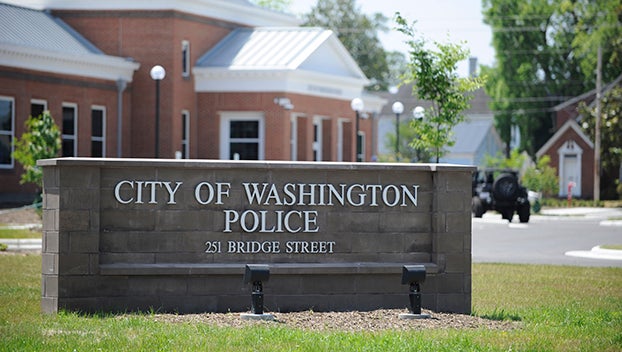Cayton: work together toward common goals
Published 8:37 pm Saturday, March 17, 2012
Robert Cayton, a candidate for the N.C. House of Representatives, believes North Carolina’s eastern legislators should work across party lines to achieve common goals for the region.
“The eastern delegation has got to stick together,” Cayton said in a recent interview with the Daily News. “We’ve got to be able to sit down and say, ‘These are our priorities’.”
The North Carolina economy is based on agriculture, businesses that serve agriculture, tourism and the military, Cayton said, noting that all of these are found predominantly in eastern North Carolina.
The area needs leaders in Raleigh who will help the region develop good roads, good bridges and maintain strong educational opportunities not only in its public schools but its community colleges, Cayton said.
And, Cayton says, his experience as a Democrat on the Republican-controlled Beaufort County Board of Commissioners has helped him develop the skills needed to work with members of both parties to promote the area’s agenda in Raleigh.
“I believe being a Beaufort County commissioner has prepared me to work with people on both sides of the aisle,” he said. “I believe I can translate that experience to the halls of the legislature.”
Cayton said he chose not to seek re-election to the county board following the recent redistricting of state House of Representatives districts in 2010 by the N.C. General Assembly.
He said the 3rd District, which includes Pamlico and parts of Beaufort and Craven counties is “a district I feel very much at home in.”
Cayton faces no opposition in the Democratic primary. Three Republicans — Wayne Langston of Chocowinity, Michael Speciale of New Bern and Clayton Tripp of Vanceboro — are vying for the Republican nomination in May and the chance to face Cayton in the general election in November.
Cayton, 61, is a native of Beaufort County and lives with his wife, Debra Rose, in the home in which he was born near Edward.
Cayton graduated from Aurora High School in 1969 and from Atlantic Christian College, now Barton College, in 1973 with bachelor’s degrees in religion and philosophy and history. He earned a master’s of divinity degree from Southeastern Baptist Theological Seminary in Wake Forest in 1977 and a doctorate in ministry in 2001 from Luther Rice University in Atlanta.
Cayton is an ordained Christian Church (Disciples of Christ) minister and currently serves as pastor of Reelsboro Christ Church and Concord Christian Church, both in Pamlico County.
Cayton serves as president of the Beaufort County Grange and member of the Beaufort County Farm Bureau. He is vice president of the Family and Consumer Science Foundation, an organization that helps fund family and consumer science programs offered by the N.C. Cooperative Extension Service.
The candidate has served as a member of the Beaufort County Community College Board of Trustees for over 20 years and is a member of the Board of Trustees of Barton College.
Cayton represents Beaufort County on the Highway 17 Association and the Southern Albemarle Association, which works to improve roads and bridges in northeastern North Carolina.
He is a former candidate for the state Senate and House of Representatives.
Cayton said he would oppose any effort by state lawmakers to merge some of the state’s smaller community colleges together or with a larger community college to create a regional entity.
And he will fight to preserve a road construction-funding formula, known as the “Equity Formula,” that dictates the way road-construction dollars are spent in North Carolina. It was adopted in 1989 as part of legislation that established the Highway Trust Fund and requires a portion of road construction money be evenly divided among these seven regions, regardless of population.
The formula has come under fire recently by some lawmakers from the more urban areas of the state.
Preserving that formula “has got to be a non-negotiable position” for representatives from the rural eastern and western regions of the state, he said.
Cayton also said he opposes an effort to turn the responsibility of funding some roads back to the counties.
He said eastern North Carolina’s history should play a strong role in the economic development of the region but, he said, it will take time for the region to reach its full economic potential.
“Economic growth in eastern North Carolina isn’t going to happen over night,” he said. “But I believe we can do more in Raleigh.”






